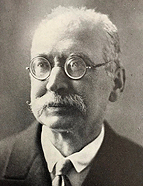

A decade later, the second of the aforementioned works, História de Portugal , began to be published. It shares some characteristics with HIP that, paradoxically, can be understood as aspects that contributed to, on the one hand, subsequent Portuguese historiography surpassing it and, on the other hand, having a long editorial longevity, with the latest edition dating from 2018, under the presentation and coordination of José Manuel Garcia. Thus, the insistence on periodisation by reigns, plus the summary of the monarch and the royal family at the end of each of these sections, meant a step backwards in the methodological progress that attention to political and socio-economic developments as periodisation criteria had represented with Herculano or Oliveira Martins, as noted by Sérgio Campos Matos ( See “ ALMEIDA, Pereira de Andrade, FORTUNATO DE ’ , Dicionário de Educadores Portugueses ) .
However, the didactic usefulness of this option, combined with the persistence of the traditional view of the uniqueness of Great Men, may have contributed to the longevity of his HP . On top of this, there is a certain perspective on the Nation ’ s journey, combining supposed greatness with a presumed decadence resulting from denationalising influences that continue to have some intellectual support. In this regard, are eloquent the words of Caetano Beirão, for whom th is work was the result of “ conscientious, calm, objective, documented, albeit sometimes excessively superficial ” work, which contrasted with previous works that gave a “ distorted history that suited his bastard ideal ism, his political conveniences” , both for the “ blue-and-white democracy, first ” and for the “ green-and-red democracy, later ” . This resulted in a “ History to teach the Portuguese to be Portuguese” . The same Beirão, however, brought it closer to the works of Pinheiro Chagas, Sousa Monteiro , and Latino Coelho, “ without the magical style of Oliveira Martins’, saying that it was clouded by “ political passion ” because it failed to support D. Miguel’s claim to dynastic legitimacy. It was thus far removed from the nationalism of the integralists, which also saw António Sardinha strongly criticise this work, considering it to be exaggeratedly erudite and superficially analytical. Conversely, it can be appreciated for its synthetic nature, condensing detailed information, served by a detailed narrative and careful systematisation of a wide bibliographical collection, with frequent and often extensive quotations from the sources it uses, sidelining the historian ’ s interpretative activity as if the quoted text said it all. The need for documentary support led him, as in the case of the School of Sagres, to an evolution in his historiography, distinguishing legends from facts, rejecting some of the elements that reinforced the traditional providenti al reading of the country ’ s history, such as the miracle of Ourique. Even so, his reading of the nation ’ s journey is not devoid of essentialist elements, combined with a decadent perspective resulting from the external influences that contaminated the character of the country. This is clear in the assessment of some episodes, as in the case of some of the religious reforms undertaken by the more radical liberal sectors, attributed to the influence of Freemasonry and the “ Jacobin spirit ” that was “ imported ” from France.
This work is financed by national funds through FCT - Foundation for Science and Technology, I.P, in the scope of the projects UIDB/04311/2020 and UIDP/04311/2020.
